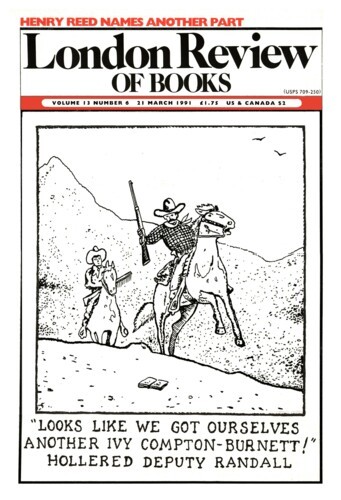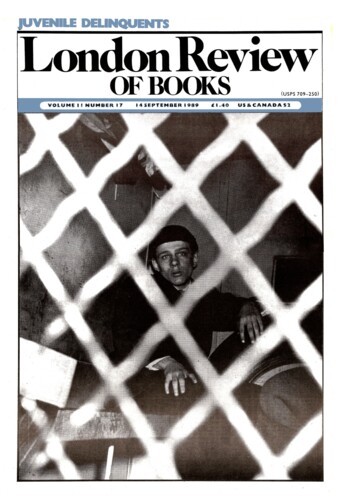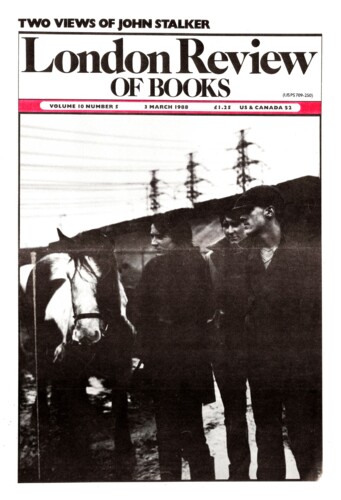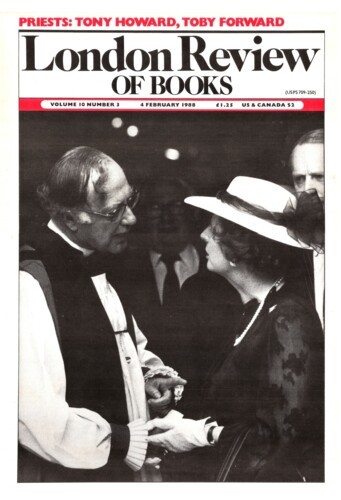Six hands at an open door
David Trotter, 21 March 1991
Dennis Brown concludes his celebration of Anglo-American Modernism with an account of Ezra Pound’s death on 30 October 1972. ‘That year I ended an obituary of Pound in a Canadian student newspaper: Pound is now dead and no poet remains of his stature. But poetry is “NEWS that stays NEWS”. READ him: Read HIM.’ The capitalisation is very much of the period, and it may he that the message is as well. For the poet’s death was shortly followed by a critical work, Hugh Kenner’s The Pound Era (1974), which placed him at the head of the ‘Men of 1914′, and chronicled in elegiac terms his lifelong struggle to reanimate a moribund literary culture. Brown shifts the emphasis from Pound Era to Group Era, but his approach is otherwise remarkably similar – remarkably, that is, when you consider how much has been written on the subject since 1974, some of it tending to a qualification of Kenner’s thesis. Criticism, after all, is news that doesn’t necessarily stay news.’





